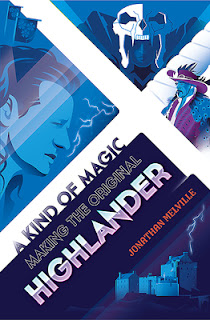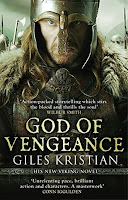I'm mixing up the usual bookish stuff with one of my first loves: travel writing. I think with the whole pandemic many of us have been suffering severe cabin fever. All through 2019, one of my greatest wishes was to see the Karoo again, where my dad was born and grew up. I can't help but feel a bit misty-eyed when I listen to my mom's stories about when they lived in De Aar, and also remember my dad's stories about what it was like to grow up in sleepy little dorpies like Hanover and Aberdeen. Damn, I miss the old guy.
Me? Well, I grew up on the Atlantic seaboard in a sleepy little seaside village called Hout Bay. My grandfather was a fisherman and a farmer, and my mom eventually met my father in the Overberg town of Caledon, where they were both teaching during the late 1950s.
So for me to revisit these places it's often with a strong dose of bittersweet nostalgia – I was what we affectionately call a laatlammetjie (late lamb) – more an afterthought when my parents were already in their 40s. So they'd lived a whole life before me. As much as I have the Atlantic Ocean in my blood, I have an equal yearning for the big sky country of the Karoo, for this ancient sea bed now raised high above sea level, where during the past the therapsids roamed (our ancestors who were the bridge between dinosaur and mammal).
 |
I'm in my happy place
|
In particular, I've had an itch to revisit the old volstruispaleis (ostrich palace) Wolverfontein (wolf fountain?), situated just next to the abandoned railway siding Plathuis (flat house). Currently under the ownership of Andre Hagan and Ashley Brownlee, there's accommodation available in the converted Waenhuis (wagon house) and Zara Cottage (where the old headmaster used to live). The former is perfect for couples, while the latter sleeps six and is ideal for families or close-knit friends who want to have a long weekend of kuier (visiting/chilling).
Since we live in the far south peninsula, our route takes us along the coastal R310, past Strandfontein and Khayelitsha, then onto the N2 via Somerset West and over the breathtaking Sir Louwry's pass, which gives you the last glimpse of the sleeping giant of Table Mountain across the Cape Flats.
Then you enter apple country, of Elgin/Grabouw, and it's as if you've slipped into the Shire, where it wouldn't be inconceivable to encounter hobbits living in their holes. (Nice holes, mind you.) We sometimes stop at The Orchard farm stall (they have excellent pies) but this time we shot through to Swellendam in one fell swoop as we needed to collect my mum.
Then, to one of my favourite mountain passes – we could take the road to Ashton and thence on to Montagu, but we prefer to take the picturesque Tradouwpas (Women's Pass in the old Khoisan language) that winds its way over the Langeberge and spits you right out by Barrydale. The contrast between Barrydale and Swellendam couldn't be more stark. Swellendam receives a remarkable amount of orographic rain thanks to its mountain range with its deep, folded kloofs where patches of Afromontane forest persist between the endemic fynbos. But by Barrydale, the fynbos of the mountain peaks gives over to Karoo scrub and succulents, where
Aloe mitroformis create occasional flame-like inflorescences. A canny plant spotter can spend hours identifying all manner of succulents, including mesembryanthemums, asclepiads, euphorbia, and crassulacea. I've forgotten so much of what used to roll off the tip of my tongue.
This is a land of mesas, and folded sandstone heights. Keep your eye open and you might see graceful springbok pronking alongside the road. Steppe buzzards, pale chanting and gabar goshawk, white-necked ravens, and other corvids, and not to forget the countless LBJs (little brown jobs) flitting away. I did have a glimpse of a Karoo robin and many mossies (sparrows). Occasionally I even spotted majestic Verreaux's eagles soaring on the thermals. There is so much life here, if you know where to look.
The rivers here in the Klein Karoo rarely run, and stock farming has largely been replaced with game farms and private game reserves – which is good. It gives the veld a chance to recover from the unnatural disaster inflicted by domestic livestock.
 |
| Me and mum |
After lunch at the deliciously eclectic
Diesel and Crème on the R62 in Barrydale (where at every occasion my husband tries to induce a diabetic coma with their insanely decadent milkshakes) we hit the last stretch, blew past the infamous Ronnie's Sex Shop / Pompstasie (hurr-hurr), and took the Plathuis turnoff to the left just across the Touwrivier bridge. It's easy to miss, so don't be in too much of a rush. Here the tarmac gives way to a well-graded gravel road, and you drive for about 10 or so minutes until you pass Touwberg Private Game Reserve on your right and almost immediately after on your left you'll see the sign for Wolverfontein. The first thing you'll see is the signature orange gables of the old farm house, and you enter by typical aluminium plaashekke (farm gates) which you must asseblief close behind you.
The property is tucked behind a koppie, just beneath the remains of the largely abandoned Plathuis community (there are a few residents, but most of the properties are clearly holiday homes, if that).
Wolverfontein offers a typical Karoo view across the alluvial plain of the Touw River, and nature's colour palette here is a combination of rust, blond grass, blue skies and olive greenery. During the height of summer, it's almost a wasteland, and yet the stark beauty has a way of crawling into your soul. This time, the area had seen a bit of rain, and the difference in appearance couldn't be more different. So green – for the Karoo, that is.
The accommodation is wonderfully kitsch and colourful, with a Tretchikoff in almost every room, with vintage clocks, furnishings and a to-die-for braai area out back with a raised fire pit. Perfect for klippies en coke (or in our case, homemade ginger beer and Jim Beam for those who still drink booze). I must add a disclaimer, that the only time my poor husband ever braais is when we're on holiday. He's not half bad at it.
The first night we slept like the dead. Literally. Because we only woke at nine-thirty the next morning. Which is understandable considering how stressed out of our brackets we are currently with work. But we got our slow start, had a slow breakie, then headed out to Ladismith for the day so we could go have lunch. I suspect most of this weekend was spent eating. But that's what breakaways are about, aren't they?
There is no cellphone reception in the dip where we stayed, but our hosts, helpfully provided their WiFi passwords which we could then access the web if we wander up to the volstruispaleis – an activity we embarked upon several times a day so we could post pictures and check up on our housesitter (dogs were fine, thank goodness).
Mom and I did the typical thing to see who was buried in the small cemetery, and predictably there was at least one or two there who might be distant relations (small gene pool of our ancestors spread out in this area). What was particularly heartbreaking was seeing all the children's graves, and even one where the woman (age 30) clearly died in childbirth, with her unnamed 'en baba' (and baby) buried with her. There's a sorrowful tale there. The small headstones with the tiny piles of rocks, unmarked, and now decades later unremembered. Cue my usual existential angst, but hey, that's what I thrive on. I don't want to be buried. I'd rather have my ashes scattered to the wind somewhere in the Karoo.

Before our trip, I went and downloaded the Sasol eBirds 5th edition app and probably drove everyone crazy playing bird calls. It's a rad app, especially considering that I didn't feel like lugging my old Robert's Bird Book from the late 1980s along. It's horribly out of date and not half as user friendly as the app. I positively identified a resident pair of (almost as noisy as Egyptian geese) shelduck.
A word on the water – the water from the taps is so brak (salty) that it's like brushing your teeth with seawater. It's fine for doing the dishes and showering, but our hosts provide a big covered container for our drinking water, which is sweeter than rain.
The kitchen has everything you need and a super sized fridge. Just bring your food – they even have a coffee plunger. Beds are super comfortable, and though there was a nip in the air already, with it being May, we weren't absolutely freezing. (I'm sure that's still coming with winter.) Wood is provided, though we eschewed the firelighters to rather use fynhoutjies (fine wood) collected in the veld. A bit more of a challenge to start a fire, but it feels more authentic.
We weren't visiting long enough to borrow the spare mountain bikes, but for MTB enthusiasts, there are numerous amazeballs trails in the neighbouring Touwsberg reserve. You may even luck out and see the eight resident giraffe, or gemsbok and kudu, if you're lucky. We just saw lots of LBJs, and although the dirt roads were well graded, my husband was still a bit wary about driving our Ford Fiesta so far into the wilderness without us having access to cellphone signal in case of emergency. We saw not a soul. Absolute splendid isolation.
What I like about Wolverfontein is that it's far enough away from Cape Town to make you feel like you're in the veld. We didn't have the stamina to do the picturesque Seweweekspoort drive, but that is well worth the adventure. Ladismith is a good place to buy your groceries and scratch that itch if you want to go out for lunch, and you can use Wolverfontein as a base of operations for the many activities and routes available in the area.
A word on our hosts – Ashley and Andre are wonderful, attentive, and make sure you have everything you need. And they also give you your space, which is fantastic. This is seriously one of those places where you can determine what you want to do and when, with minimal fuss – so reminiscent of the kinds of holidays I had as a child when we regularly visited the Cederberg. Although I daresay the Plathuis area is a bit more isolated now than what the Cederberg used to be. You'll also get to meet the resident Ridgeback dogs who come to visit and find out if you've left any treats lying around (don't feed them).
This has been our second visit, and it won't be our last. I'm determined to experience part of a Karoo winter here later this year. The rates are so super reasonable I'm tempted to say it's a steal, but for the best rates, book through Wolverfontein's website and ask for a discount. You'll want to stay a minimum of two nights, but if you can take an entire week off, I promise you, you will not regret it.


































